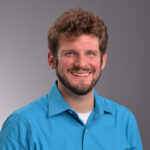Buddhism
Syllabi - Topic: Buddhism - 26 results
Select an item by clicking its checkboxA 2010 course by Mark Unno at the University of Oregon "examines the sacred scriptural traditions of East Asian Buddhism with a focus on Chinese and Japanese Zen, Pure Land Buddhism, and associated developments. . . . This examination will cover a wide range of themes against the backdrop of social and historical developments, including the development of sectarian traditions, cultural and national identity, gender and race."
A course by Sid Brown at the University of the South "is an investigation of Buddhist images, symbols, stories, doctrines, ethics, and practices as they relate to understanding the environment and humanity's role in relation to it."
A 2003 course by Jeffrey Carlson at Dominican University "explores some key reasons for, approaches to, issues in and outcomes of Buddhist-Christian interchange and reflection. Emphasis will be on Catholic Christianity and a variety of Buddhist traditions."
A 2010 course by Todd Lewis at College of the Holy Cross surveys "a law code, ascetic mysticism, religious biography, popular narrative, and scholastic treatises. We will also consider the cross-cultural definition of âtext,â hermeneutical approaches to exegesis, the idea of a âscriptural canon,â and the construction of tradition in the western historical imagination."
A 2017 course by Mark Unno at the University of Oregon "focuses on selected strains of Japanese Buddhism during the medieval period, especially the Kamakura (1185-1333), but also traces influences on later developments including the modern period." Special attention will be given to "Eihei DÅgen (1200-1253), Zen master and founding figure of the SÅtÅ sect; MyÅe of the Shingon and Kegon sects, focusing on his Shingon practices; and Shinran, founding figure of JÅdo ShinshÅ«, the largest Pure Land sect, more simply known as Shin Buddhism."
A 2013 course by Eric Nelson at the University of Massachusetts-Lowell "offers an extensive introduction to classics of Buddhist and Zen thought and practice" in India and throughout Asia.
A 2001 course by Jeffrey Richey at the University of Findlay "is an intermediate-level survey of the history and diversity of the Buddhist tradition, from the lifetime of the Buddha in fifth-century BCE India to contemporary Buddhist communities in East Asia, Southeast Asia, and North America."
A course by Todd Lewis at College of the Holy Cross surveys "the Buddhist traditions found in the Himalayas and Tibet, covering the elite philosophical, artistic, and soteriological traditions as well as popular literatures and devotional practices."
A 2009 course by Todd Lewis at College of the Holy Cross is a "study of the Buddhist tradition, emphasizing its origin and development in India as well as its historical evolution in Asia."
A 2005 course by Celeste Rossmiller at the University of Denver examines the "foundational years" of Buddhism, its development, and contemporary forms.
A 2012 course by Wakoh Shannon Hickey at Alfred University surveys "Buddhist history, teachings, and practices, in both Asia and the modern West."
A 2008 course by Chad Bauman at Butler University offers an "in-depth introduction to Buddhism, focusing on its history, literature, ideas, practices, and diverse manifestations."
A 2013 course by Christoph Emmrich at the University of Toronto, Mississauga, on the understanding and role of "power" in Buddhism.
A 2011 course by Joseph Adler at Kenyon College surveys "the history, doctrines, and practices of Buddhism in South and Southeast Asia, Tibet, East Asia, and the West."
A 1995 course by Ivan Strenski at the University of California-Riverside introduces the history and beliefs of Buddhist traditions.
A 2001 course by James Dalton at Siena College "concerns the history, development and structure of the religious traditions of Buddhism."
A 2012 course by Christoph Emmrich at the University of Toronto Mississauga "designed to introduce students to Buddhism and Buddhists in Asia."
A 2015 course by Zeff Bjerken at the College of Charleston explores "a number of thematic topics in the religions of Tibet from the 8th century to the present."
A 2013 course by Wakoh Shannon Hickey at Alfred University offers "a taste of the history, literature, and practice of Zen."
A 2011 course by Joseph Adler at Kenyon College.
A 2008 course by Catherine Wessinger at Loyola University New Orleans surveys "the history and varieties of Buddhism by an examining primary Buddhist texts, beliefs and practices, and cultural expressions."
A 2011 course by Ken Brashier at Reed College "endeavors to offer Buddhist answers to the biggest questions."
A 2011 course by Terry Muck at Louisville Presbyterian Theological Seminary surveys "the origin, history, and basic tenets of Hinduism and Buddhism. Students also study the way these religions are practiced today, and the impact each is having on the world."
A 2015 course by Frances Garrett at the University of Toronto "provides an academic introduction to the histories, fundamental doctrines, and practices of Buddhist traditions around the world."
A 2015 course by Frances Garrett at the University of Toronto explores "aspects of Buddhism in the Himalayan region through a study of religious biographies and a focus on travel and pilgrimage."
A 2020 course by Bryan Lowe at Princeton University examines "Zen in diverse historical and geographic contexts" and asks questions about how we define religion.

